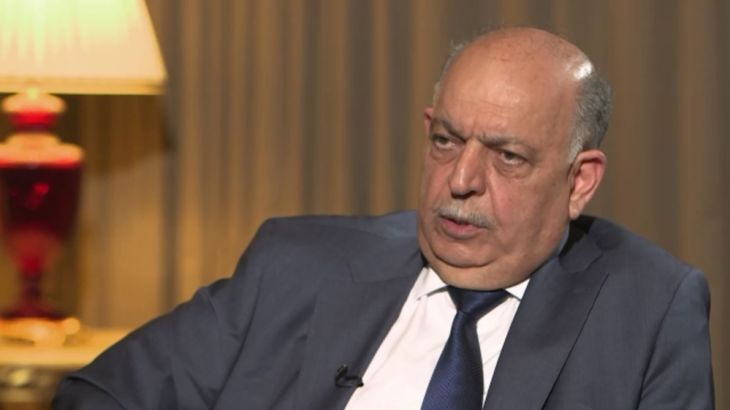
Can Iraq rebuild its economy?
Iraq’s oil minister discusses plans to strengthen its oil industry, diversify its economy and attract foreign investors.
Iraq is looking to strengthen its economy after decades of war, sanctions, sectarian division and the rise of the Islamic State of Iraq and the Levant (ISIL or ISIS).
It has achieved some progress in recent years thanks to its oil industry; Iraq is the second-largest producer in the Organization of the Petroleum Exporting Countries (OPEC) and oil provides roughly 85 percent of the government’s revenue.
Keep reading
list of 4 items‘We need you’: Solomon Islands’ support for US agency’s return revealed
Why are nations racing to buy weapons?
Parallel economy: How Russia is defying the West’s boycott
As the country enters a period of relative calm, Iraq’s oil minister, Thamer Ghadhban, says the government is working to expand its oil industries and improve infrastructure, which includes building more refineries and investing in southern gas fields and export routes.
It is also looking to increase production in nationally controlled oil fields while continuing to work with international companies.
“We have now contracts with at least 10 major international oil companies,” he told Al Jazeera. “And if we move forward with them to the plateaus that they have committed themselves to, there will be at least a two million barrel per day increase on top of what we are now.”
But as Iraq expands its oil industry, it also hopes to rely less on it. According to Ghadhban, the government plans to diversify its economy, invest in the private sector and attract more foreign investors.
For him, it is important that Iraq is less oil-dependent.
“It is an unhealthy situation, we don’t like it, I don’t like it personally. We’ve been trying to break this situation and keep away from total dependence on oil but it is not an easy task,” he says, explaining that a country that has faced devastating wars, years of sanctions, and the presence of ISIL has had little time to develop its economy.
The government also plans to become more self-reliant in resources such as electricity and gas. Regional politics and US sanctions against Iran, one of its major partners, are impacting its economy.
But making Iraq more business-friendly comes with its own challenges. A slow bureaucracy and corruption hamper the country, which ranks 168th out of 180 countries on Transparency International’s corruption perceptions index.
“We make sure that all the procedures and all the requirements for engaging with contractors are to be clean and to be away from corruption,” Ghadhban says. “I verbally inform all contractors when they come and see me whether they are … IOCs [international oil companies] or Iraqi private sector or Arab investors, that you don’t have to deal with corrupt people whether within the ministry or outside.”
Ghadhban believes the world will depend on oil for years to come but says Iraq is still planning for a time when it can no longer rely on it.
“Definitely we have to think about this seriously because it’s not only us, this is also the future generation of Iraq we have to care about and there are now, of course, talks within the government to not only diversify the economy but also to think seriously about a sovereign fund and also bring in with time other sources of energy,” he says.
“As an example, we are now seriously taking measures about the renewable [energy], especially the solar power to provide electricity within the term of this government.”